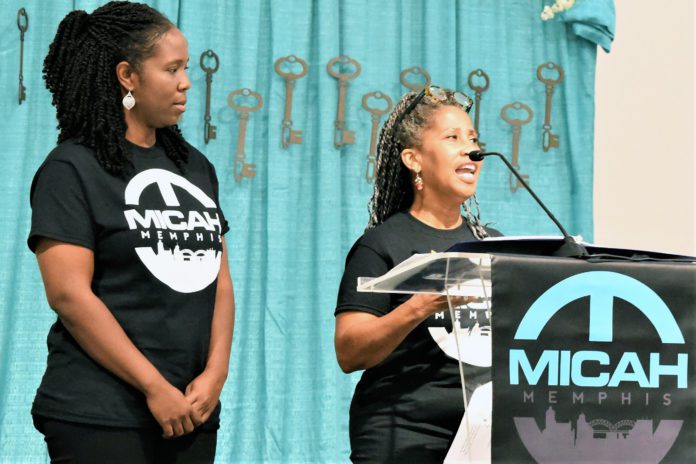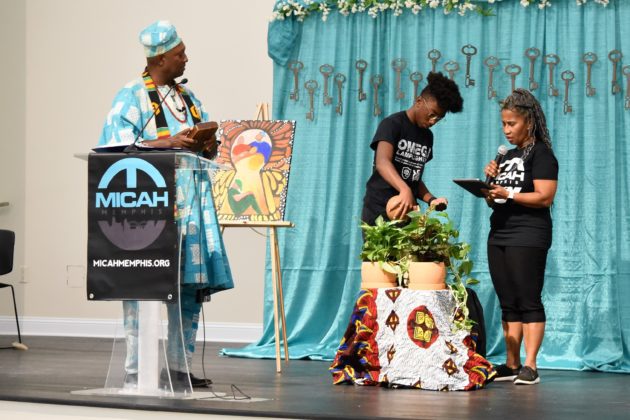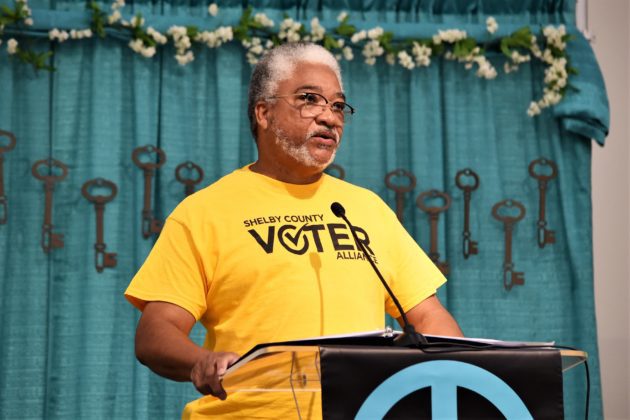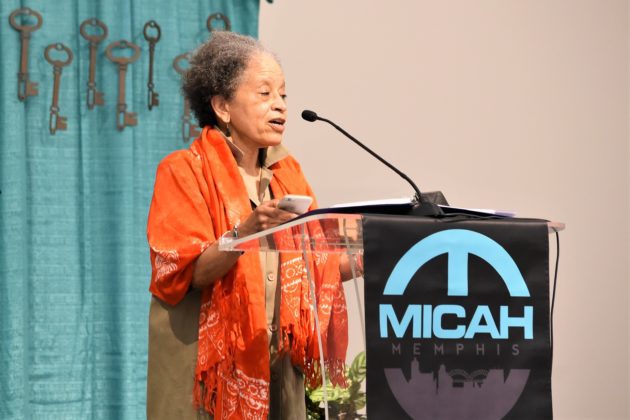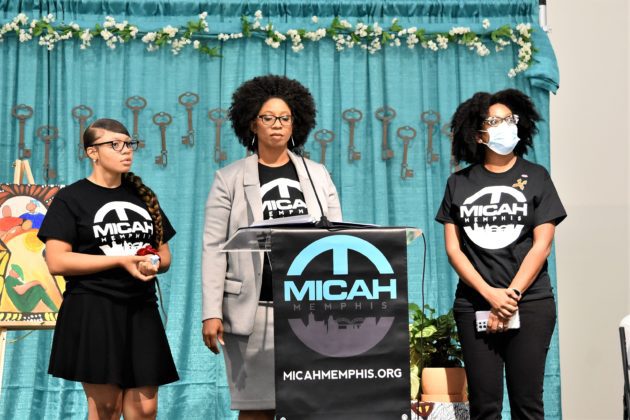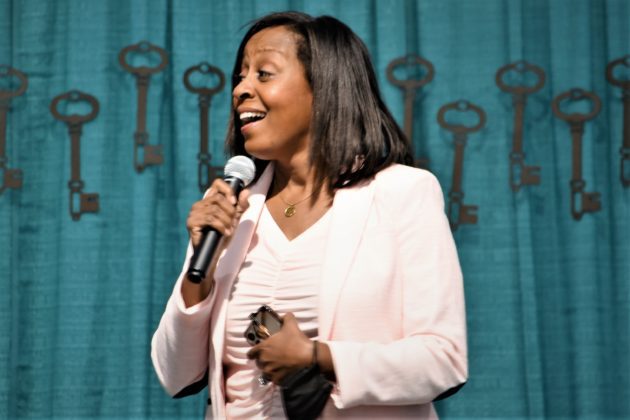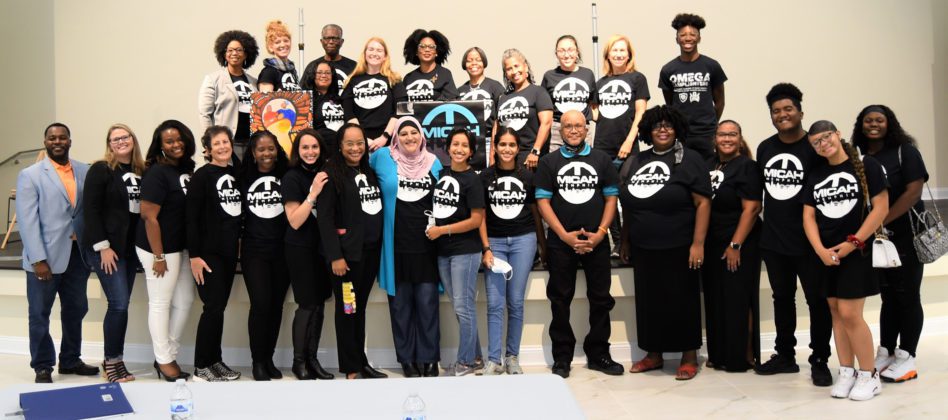The Memphis Interfaith Coalition for Action and Hope (MICAH) proposed systemic ‘asks’ of elected officials and other leaders, during their fourth annual public forum last Sunday (Oct. 24) at Cordova’s Memphis Islamic Center.
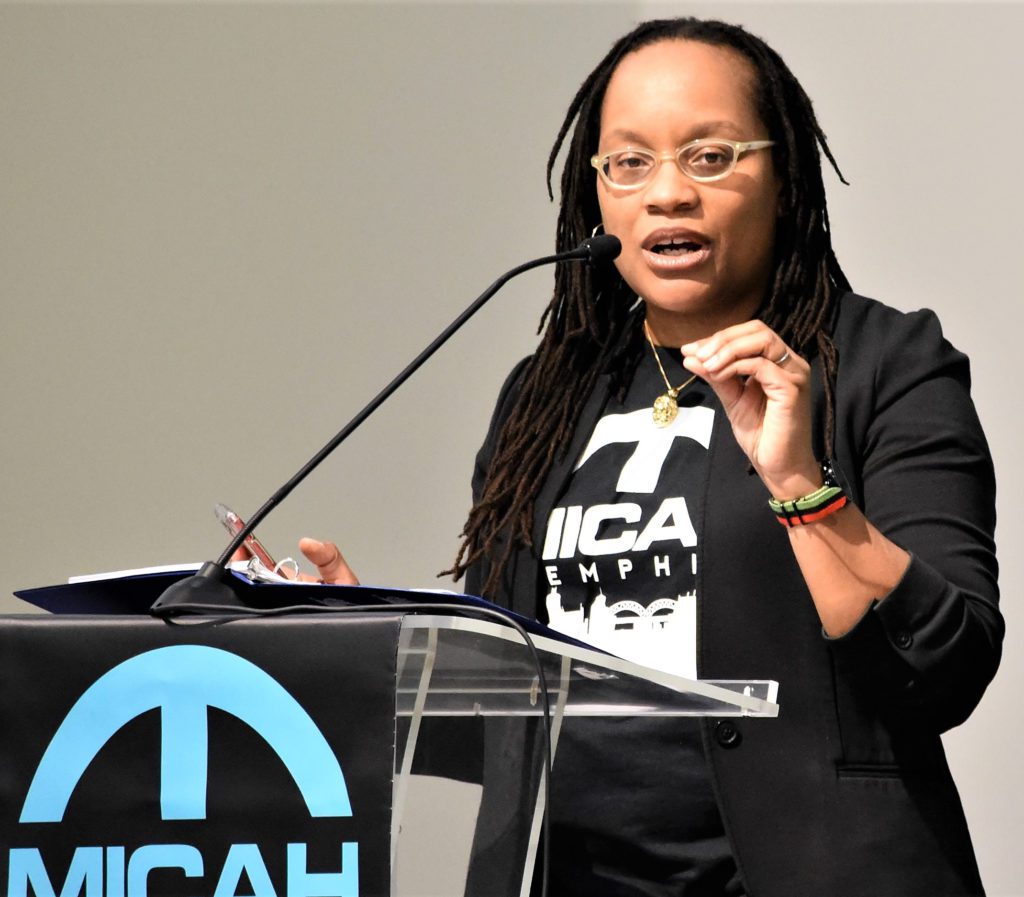
MICAH, a coalition launched in 2017, is made up of more than 70 community and faith-based organizations. It examines and addresses issues of equity and justice in Memphis.
During the annual meeting, three main areas of concern were discussed: Economic Equity, Education Equity, and R.A.C.E. (Race and Class Equity).
Co-chair of R.A.C.E., Ernie Hilliard, said he is happy with the direction his ask is taking.
“Shelby County Sheriff Floyd Bonner was invited, but he apologized because a personal, family matter prevented him from attending,” said Hilliard. “But, he said ‘yes’ to our asks, regarding our issues with the justice system. Police Chief CJ Davis, was out of town, but she sent a representative to attend, hear the information, and report back for future discussions. We were pleased about the direction of these future discussions.”
Bonner and Davis were asked to:
- Support and facilitate the diversion of mental/behavioral health crisis incidents to civilian-led teams of trained professionals to free up law enforcement to engage in more community policing.
- Agree to meet with MICAH quarterly on this mental/behavioral health crisis issue, with the option to connect more regularly, on pressing policing concerns of the community.
Bonner answered both requests in the affirmative, as long as the safety of the trained, mental health professionals is secure, according to Hilliard. Bonner communicated with the R.A.C.E. Justice System Task Force through email.
Davis’ representative, Col. Dennis McNeil, did not formally speak, but instead promised on the police chief’s behalf to ongoing discussions about the requests from MICAH.
Hilliard said changes in the justice system are especially important for individuals who have been incarcerated to re-assimilate back into society.
“The system is not broken,” said Hilliard. “Unfortunately, it is doing exactly what it has been designed to do: stifle Black people and make it hard for them to thrive after incarceration. They need jobs, but then there is the matter of expungement.”
Sending police officers to calls involving mentally ill persons has been an ongoing concern for years.
The Memphis Police Department has a Crisis Intervention Team, or CIT, that has officers trained to respond to mental health calls. MPD’s CIT was the first of its kind in the country when it started in 1987.
During Chief Davis’ meeting last week with local media, she voiced support for the CIT program and said that MPD is looking to include the training as part of basic training at the police academy.
In addition to policing equity, MICAH also asked for equity within the court system. The group is asking Shelby County District Attorney Amy Weirich to reduce mass incarceration and pursue more just, restorative justice practices in three ways:
- Stop requesting the transfer to adult court of youths who are not accused of being directly responsible for serious bodily injury or death.
- To help limit the use of pretrial detention by creating a money bail policy within her office that prioritizes release and the least-restrictive means of release.
- To create and implement a Conviction Review Unit within the Shelby County District Attorney’s Office by May, 2022 and to have it fully implemented by Jan. 1, 2023.
Weirich did not attend Sunday’s meeting, citing a prior commitment. No one attended as a representative of the D.A.’s office.
According to MICAH Vice-President Janiece Lee, Weirich said she had no interest in forming a Conviction Review Unit, telling Lee – during a meeting of the two – that her office is a conviction review unit.

William Arnold, 49, of Memphis, was convicted in Nashville in 2013 and sentenced to 25 years in prison. Arnold told meeting attendees that the Davidson County Attorney General’s Conviction Review Unit helped get his conviction overturned and that he was released last year from prison after serving six years.
Memphis needs a Conviction Review Unit, he said.


